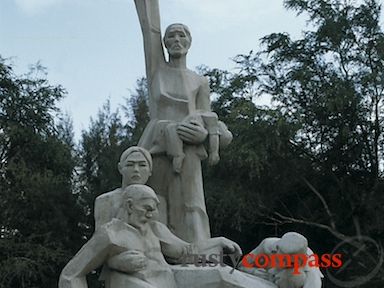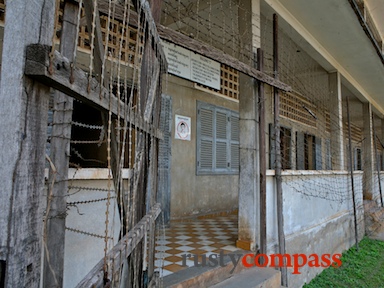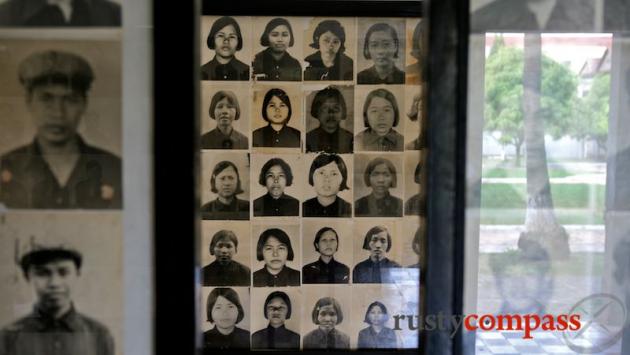While most vets carry scars from that war, his wounds were there for all to see - permanently - after just two days of combat. Nearly a quarter of a century later, in 1993, he was back in Vietnam to try and make amends for the wrongs of the war - even though he was himself a victim. It was a powerful encounter.

Photo: Mark BowyerStark memorial at My Lai, Vietnam
The former marine whose name I have forgotten, said that the US owed the people of this part of Vietnam for the terrible suffering they had endured.
Late last week, I was reminded of this man and My Lai again by a very different man, Lt William Calley. Forty one years after the massacre at My Lai, Calley, the only man found guilty of murder for his role in it, issued an apology for his actions. Despite being found guilty of the murder of at least 22 innocents - mainly women, children and old men - Calley was effectively pardoned by the Nixon Whitehouse. Calley was the officer in charge on the ground on the day of the massacre.
Calley's apology was forty one years too late and no doubt brought little comfort to the families who suffered unspeakable crimes at the hands of he and his men.
Meanwhile, a few hundred kilometres away in Phnom Penh Cambodia, a small Khmer man a year older than Calley is on trial for crimes he presided over at the infamous Khmer Rouge S21 prison, also known as Tuol Sleng, during the late 1970s. Duch like Calley was cursed by the same demon of history - America's war in Indochina. The rise of the Khmer Rouge was one of the many unintended consequences of that failed mission.
Many thousands were tortured and murdered under Duch's watch and more than a million died at the hands of the Khmer Rouge. There are arguable differences in the gravity of the crimes of Duch and Calley. How do you quantify the relative gravity of presiding over the slaughter of hundreds in a morning of depraved killing, compared to the systematic slaughter of thousands over nearly four years? Both men claim to have been carrying out the orders of their superiors. The context for both men was a wider climate of war and brutalty. Chillingly, both men lived relatively normal lives in obscurity for decades after they escaped their respective pasts.

Photo: Mark BowyerTuol Sleng prison Phnom Penh. Comrade Duch is finally being brought to justice. Not so Calley
In 2007 however, time was up for Duch. He was charged with crimes against humanity by the UN backed Cambodian Tribunal, an international tribunal that enjoys the recognition of the Cambodian government and the support of the US government. Duch is being forced to account for his crimes finally. Calley meanwhile is a free man - though unlike Duch, Calley has been convicted of mass murder.
As Calley was making his apology last week, a furore was erupting over the release of the only man convicted for the bombing of Pan Am flight 103 over Lockerbie in December 1998. Aggrieved American families were outraged. President Obama expressed disgust.
But Calley and his cohorts live freely amongst those same people, protected by their conceptions of justice.
Calley's comments did not attract much attention in Vietnam. No calls for justice. No calls for an international tribunal hearing. No screams of protest from the families of the victims.
I doubt the silence from Vietnam should give anyone comfort. Perhaps the Vietnamese have a more solid grounding in the ways of international justice than most. And more realistic expectations.
Links
There is a huge amount of material online about the My Lai massacre and Calley. The links below, one from TIME magazine and a piece of video from the BBC provide great primary insights from the early 1970s.
BBC video with Charles Wheeler from 29 March 1971
TIME magazine piece from April 12 1971





There are no comments yet.